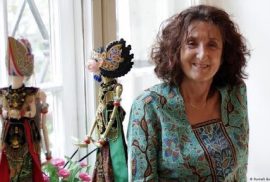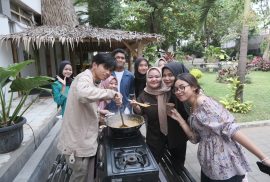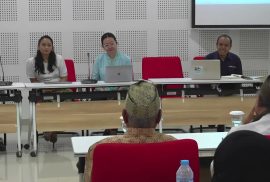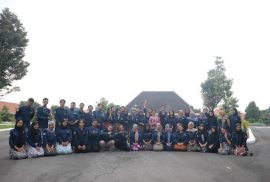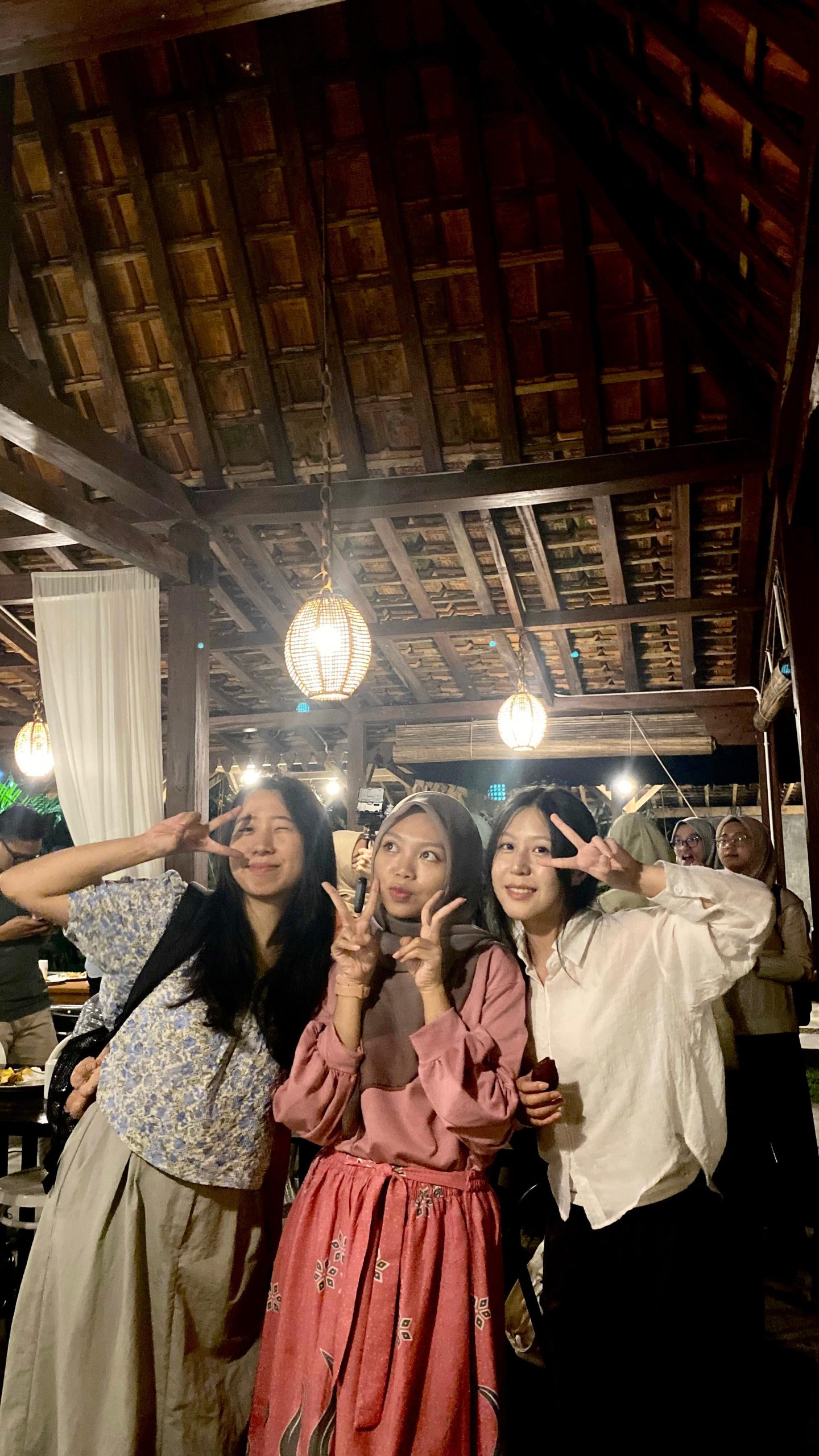On June 14, 2024, the French Language and Literature Program at Universitas Gadjah Mada (UGM) received a donation of Italian books from Laura Romano. Laura Romano is an Italian language lecturer who taught in the French Literature Program at UGM from around 2003 to 2009. Currently, Laura Romano is an Indonesian citizen originally from Italy and a practitioner of Sumarah. She now resides in the city of Solo.
The books donated by Laura Romano came from her personal library. The shipment included 10 boxes of books categorized into several themes. These categories included Philosophy and History, Italian Language Lessons, Novels, Spirituality, as well as CDs and DVDs. The total number of books, CDs, and DVDs donated reached 261 items. The collection is quite diverse, with one of the notable works being an Italian version of Marcel Proust’s writings. Additionally, many of the CDs and DVDs are Italian-language films, including the movie “La Neve nel Cuore.”
Laura Romano hopes that this book donation will be beneficial for the Italian language learning activities at UGM. Moreover, for those who wish to learn through films or educational videos, the CDs and DVDs she provided are available. She also hopes that these books will help introduce Italian culture more broadly within the UGM community.

